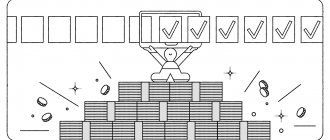The other day we received a question: “I turn white and pale when my tooth starts to hurt. I endure for a long time and yet, 2-3 days before going to the dentist, my heart jumps out of my chest! No matter how much you inspire, no matter how you convince yourself, nothing helps. Valerian and pepper are also powerless... I don’t know what to do, I urgently need to treat pulpitis and caries..."
Our dentists always answer questions from the Internet. But this time they did not immediately find what to answer. We sat in the resident’s room, drank tea, and the discussion resulted in this little note for patients.
The answer to this question is both simple and complex at the same time. But everyone must answer it themselves and overcome their fear. We are not psychologists, but we will try to help a little with this and give some practical advice.
Interesting facts about people's attitudes towards dentists
Effective painkillers appeared in medicine relatively recently, and in dentistry for a long time anesthesia was used only for the most painful operations. Almost always, dental treatment was carried out “live”, and the patient was forced to endure all the dentist’s manipulations in the oral cavity. After this, powerful impressions remained, which only intensified with each memory and could even develop into a real phobia. By the way, fear of dentists has three scientific names: dentophobia, stomatophobia or odontophobia (all three words are synonyms, but the most established form is dentophobia). Some statistics:
- ;
- approximately 10% of patients experience panic fear before dental treatment;
- in 90% of cases, successful dental treatment in childhood saves a person from dental phobia for life;
- approximately 2% of Russians have never been examined by a dentist in their lives.
;
;
As a rule, fear of dentists develops after severe stress associated with dental treatment. Pain is not necessarily the cause, since a person may experience panic simply from the sensation of strong mechanical effects on the dental tissue or jawbone. In addition, the effectiveness of anesthetic drugs can be significantly reduced due to the patient’s excessive concentration on his sensations or due to drinking alcohol “for courage.”
Features and types of dentophobia
Fear of dentists is a phobia that has no rational basis and is based primarily on psychological discomfort, and not at all on physical pain. It is expressed in the fact that a person experiences panic fear of any dental procedures in his oral cavity. Such people usually wait until the last minute to visit the dentist and turn to him only when the condition of their teeth becomes completely neglected. Before this, they often resort to alternative medicine, only aggravating the situation. Psychological research shows that there are three different forms of dental phobia:
- ;
- Acquired. This form is the most common. Based on negative experiences associated with too painful or lengthy dental treatment. A person with this form of dental phobia usually delays his next visit to the dentist until the last minute. When he finally gets to the dentist’s office, due to the advanced disease, the treatment procedure turns out to be too complicated and lengthy, which only strengthens the negative perception.
- Congenital. The rarest form of dental phobia, not associated with any negative experience. Manifests itself in an unreasonable fear of any manipulation in the oral cavity. After the first dental treatment, it is possible to either get rid of the phobia or worsen it with the appearance of a negative attitude towards dentists in general.
- Imaginary. This fear occurs in people who have never visited a dental office. It is explained by a wild imagination and incorrect perception of the entire treatment process. Usually, it is enough to overcome the fear of the dentist once, and after successful treatment, the imagined dental phobia goes away forever.
;
;
Any of the listed forms of fear of dentists can cause a person to delay a visit to the dental office until the last minute. Such delay contributes to damage to neighboring teeth and gums, the development of pulpitis and other chronic complications. Most often, dental phobia has the following manifestations:
- ;
- anxiety or even panic;
- tension and trembling in the muscles;
- looking for a reason to postpone treatment;
- loss of control over one's own thoughts and actions;
- nervousness and sweating;
- felt tachycardia, pressure drops;
- all kinds of digestive system disorders;
- causeless dilation of pupils;
- pre-fainting states;
- feeling of helplessness and hopelessness.
;
;
;
;
;
;
;
;
;
Practice shows that previously dental phobia could be so strong that full dental treatment became simply impossible. People were afraid of any manipulation in the oral cavity and even refused prosthetics. Advanced dental diseases greatly affected a person’s appearance and interfered with building social connections and building a personal life. Despite the fact that dental phobia greatly spoiled the quality of life, there was practically no help for people with such problems before. Today the situation is somewhat different, and patients are helped to get rid of the fear of the dentist using modern psychotherapeutic methods. Such help involves a detailed study of the problem with the identification of events that caused the development of pathological fear.
How does dental phobia arise and develop?
If there is strong fear that interferes with normal dental treatment, it is necessary to determine its root cause. Any previous pain can develop into a strong phobia that is difficult to eradicate. The task of doctors is to help a person get rid of anxious thoughts and convince him that modern dental treatment is a safe and painless procedure. Today, dentists have at their disposal modern equipment and anesthetic agents that allow them to carry out any dental operations almost painlessly. If previously local anesthesia was used only for complex operations in the oral cavity, today even the treatment of minor caries is carried out with anesthesia. And more complex dental treatment is increasingly performed under general anesthesia. Most patients are unaware of this and are afraid of experiencing severe and prolonged pain again. It is this ignorance that fuels their phobia. To understand how to get rid of the fear of dentists, it is necessary to identify the causes of its occurrence. Most often, phobias have the following causes:
- ;
- Acquired dental phobia usually develops as a result of negative experiences with dental treatment. In addition, the cause may be hypochondria or other mental disorders.
- The congenital form of phobia often occurs as a result of genetic pathologies or intrauterine processes that affect the development of the fetus and the metabolism of serotonin and norepinephrine in adulthood. These hormones have a strong influence on sensitivity and pain threshold, as well as on the tendency to anxiety and groundless worries. Most often, the innate fear of the dentist is explained precisely by disturbances in the metabolism of serotonin and norepinephrine.
- Imaginary dental phobia develops after reading frightening stories in the media or after stories from friends who colorfully described and embellished their negative experience of visiting a dental office. A person’s general distrust of doctors can greatly influence the development of imaginary dental phobia. Sometimes such fear can develop even in childhood, when the child is constantly frightened by the doctor, generously telling him what horrors await him if he does not brush his teeth.
;
;
Regardless of the primary cause of dental phobia, a visit to the doctor cannot be delayed, since the fear will only intensify and the situation will worsen. Ideally, you should go to the dental clinic at the first sign of tooth decay. In this case, the treatment will be as effective, fast and comfortable as possible.
Nitrogen
The simplest thing we can suggest to you is to breathe nitrogen. The same thing that makes a person fearless and joyfully laughing at pulled out teeth. It doesn’t remove pain in any way, but it perfectly turns off its emotional coloring, and this is a large part of the perception of pain. Children often play “fighter pilots” with these nitrogen masks and think that going to the doctor is fun and cool (if the nurse works properly, of course, she should know child psychology). Nitrogen is worth trying at least once as part of general development if you have any doubts: it is quite safe and can make your life very much easier during complex interventions.
Psychological assistance for dental phobia
We bring to your attention some professional advice on how to overcome fear of dentists, from psychotherapists who regularly help patients solve this problem:
- ;
- You need to understand for yourself that dental health is the basis for the health of the whole body, so it is imperative to treat them. And the sooner help is provided, the faster and simpler the procedure will be.
- If the patient cannot overcome fear on his own, then you can always use the help of a psychotherapist or psychoanalyst.
- Confidence in the competence of doctors helps to significantly reduce fear. Therefore, you need to immediately choose a good clinic that uses modern equipment and anesthesia methods.
- It is advisable to create a trusting atmosphere, so you will know that the dentist is striving to make the treatment process as comfortable as possible for you. It’s good if this is a friend or family doctor whom you always visit.
- To understand how to overcome fear of the dentist, you need to find out what causes this fear. Most often this is a misconception about the treatment process. Just talk to your doctor and ask what technologies he will use to reduce pain.
- It is advisable that the clinic be free of odors of bleach, formaldehyde, other chemicals and medications. Often these odors become the cause of psychological discomfort.
;
;
;
;
;
Let's do it again
- It’s normal to ask for anesthesia for any fear.
- It is normal to request anesthesia for discomfort that interferes with treatment (for example, an instrument rubbing against your teeth or tickling during hygiene).
- It’s normal to ask to see how instruments are sterilized.
- Asking for an explanation of how each device works in a doctor’s office is normal (just don’t abuse this opportunity or warn in advance that you need a tour, there are patients further away).
- It’s okay to cry in the office if you feel like it. This is part of the compensation for fear, our body does this. Nothing unusual.
- It’s normal to reschedule your appointment to gather your strength. Sometimes this is necessary due to bowel behavior.
- It’s normal to know the meaning of every doctor’s manipulation.
- Bringing someone with you to hold hands is at the doctor's discretion.
Willpower is trained.
If you can conquer fear in small things, then it will be easier to defeat fear in large things. A patient who was previously embarrassed to go to a urologist or proctologist, and then stopped, will most likely accept the dentist calmly. Fear is normal. Doctors see fearful patients every day. We don’t laugh at this, this is the patient’s usual state. The fact that you came is very good, and it is a sign of respect for us, because you were not afraid to come to us. This is not a legend for patients; doctors really have respect for those who simply sincerely explain what is wrong with them. Without playing detective, as often happens.
Fear is easier to bear in a good physiological state. It’s better to get enough sleep, come in the morning (before you’re tired), and not be very hungry (unless your stomach is “twirling”). If you have something important to do after the doctor, it’s better to reschedule either the appointment or the case.
If you are afraid to tell your doctor something or don’t want to share your fears with him, this is a sign of not the most professional doctor. The doctor must recognize the patient's condition and ask him to tell him what is bothering him. The dentist does not start treatment right away, but tells what will be done and how (if this is appropriate, that is, if it is not dental phobia in certain forms), talks about the equipment, shows sterilization and talks about other safety aspects. In our application, when making an appointment, the protocols of each future intervention are automatically uploaded: you can read in advance what exactly the doctor will do and in what order, so that you can ask questions on the spot.
What if dental phobia cannot be eliminated?
If the patient experiences severe fear that cannot be eliminated, sedation is the best option. This is the name of the procedure that allows you to put the patient into sleep, during which he will not experience any discomfort, but will wake up with healthy teeth. This approach is becoming increasingly popular, especially in pediatric dentistry. It is important to understand that the situation has improved greatly over the past decade. Natadent dentistry has a wide range of local and general anesthesia products. Almost any manipulation in the oral cavity involves pain relief, so the days of painful dental treatment are a thing of the past. The best way to understand this and overcome dental phobia forever is to visit the dentist more often in order to promptly identify and eliminate any dental problems in the initial stages.
Tips on how to overcome your fear of dental treatment
How not to be afraid of the dentist? This question is asked by any person suffering from dental phobia, and the following tips can help him:
- In order not to be so afraid of the dentist, you can first make an appointment with him for a preliminary consultation. Nothing terrible will happen during it, and the patient will have the opportunity to get to know the attending physician, ask him all the necessary questions and, possibly, establish a trusting relationship with the dentist. In this case, it will be easier for the person to relax in the dentist's chair, and he will not be so afraid.
- Before the preliminary consultation, you should independently understand your fears so as not to forget to ask the doctor the most pressing questions. For example, if a person constantly thinks: “I’m afraid to have a tooth removed because the last time it was very painful,” it is precisely about the specifics of this procedure that you need to talk to the dentist about.
- You need to agree with your doctor that he will immediately stop the procedure if it suddenly becomes painful. Such a promise will help the patient gain confidence and peace of mind.
- If before any dental procedure the patient asks to be given anesthesia, his anxiety will immediately decrease.
- When choosing a dental clinic, it is better to give preference to one that is more like a sanatorium than a hospital, which causes unpleasant associations.
- In addition, a person who does not understand how to stop being afraid of the dentist will greatly benefit from the support of loved ones.










